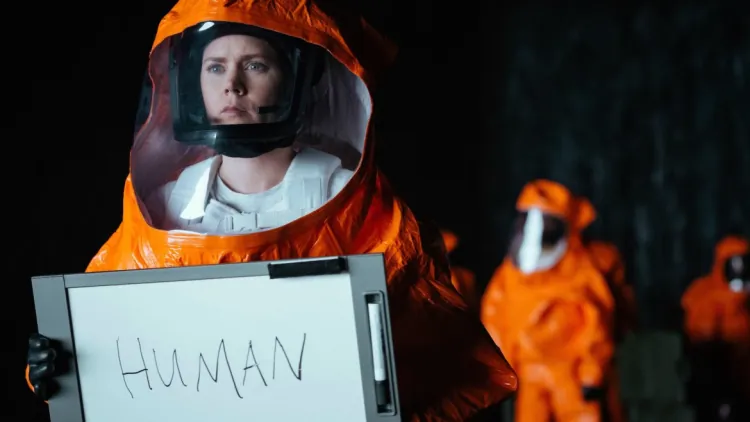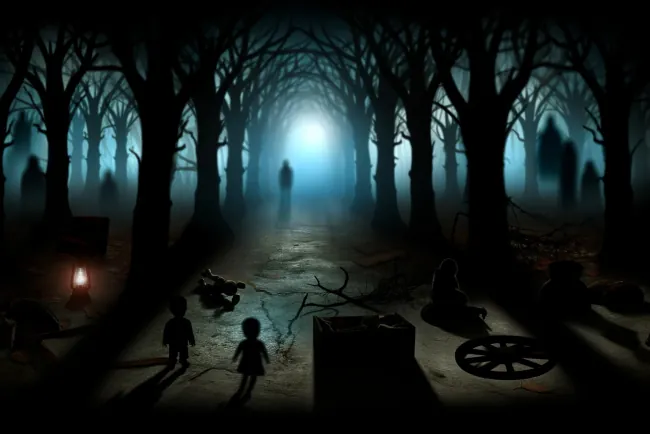The Evolution of Sci-Fi in Cinema: From Imagination to Reality
Discover how sci-fi films blend imaginative storytelling with technological innovation and societal reflection, shaping the future of filmmaking and popular culture.

The Evolution of Sci-Fi in Cinema: From Imagination to Reality
Science fiction (sci-fi) has long been a beloved genre in cinema, captivating audiences with visions of the future, explorations of the unknown, and profound reflections on humanity. From early cinematic experiments to today's blockbuster hits, sci-fi films have pushed the boundaries of storytelling and technology. This article explores the evolution of sci-fi in cinema, its defining characteristics, and its impact on both the film industry and popular culture.
The Origins of Sci-Fi in Cinema
Early Pioneers
The roots of sci-fi in cinema can be traced back to the silent film era. Georges Méliès' A Trip to the Moon (1902) is often regarded as the first sci-fi film. This groundbreaking work featured imaginative special effects and a whimsical narrative about a journey to the moon, setting the stage for the genre's future development. Another early example is Fritz Lang's Metropolis (1927), a visually stunning film that depicted a dystopian future society and addressed themes of class struggle and technological advancement.
The Golden Age of Sci-Fi
The 1950s marked the golden age of sci-fi cinema, fueled by post-World War II anxieties and the dawn of the atomic age. Films like The Day the Earth Stood Still (1951), War of the Worlds (1953), and Invasion of the Body Snatchers (1956) reflected societal fears of nuclear annihilation, alien invasions, and loss of individuality. These films often used sci-fi elements to comment on contemporary issues, blending entertainment with social critique.
The Evolution of Sci-Fi: From Camp to Credibility
The 1960s and 1970s: New Horizons
The 1960s and 1970s saw a shift in sci-fi cinema, with filmmakers exploring more sophisticated and ambitious themes. Stanley Kubrick's 2001: A Space Odyssey (1968) is a landmark film that combined philosophical inquiry with cutting-edge special effects, presenting a contemplative vision of humanity's future. Similarly, Andrei Tarkovsky's Solaris (1972) offered a meditative and psychological take on space exploration.
The Blockbuster Era
The late 1970s and 1980s ushered in the blockbuster era of sci-fi cinema, characterized by high-budget productions and groundbreaking special effects. George Lucas's Star Wars (1977) revolutionized the genre with its epic storytelling, memorable characters, and innovative visual effects. Ridley Scott's Alien (1979) and Blade Runner (1982) further pushed the boundaries, blending sci-fi with horror and noir elements to create atmospheric and thought-provoking films.
The Digital Revolution
The 1990s and 2000s saw the rise of digital effects, enabling filmmakers to create increasingly complex and realistic sci-fi worlds. The Matrix (1999), directed by the Wachowskis, introduced audiences to a cyberpunk reality where humans are trapped in a simulated world, combining philosophical depth with groundbreaking visual effects. James Cameron's Avatar (2009) showcased the potential of 3D technology and motion capture, creating an immersive alien world that captivated audiences worldwide.
Defining Characteristics of Sci-Fi Cinema
Exploration of Future and Technology
Sci-fi films often explore the potential consequences of technological advancements and the future of humanity. Whether depicting space travel, artificial intelligence, or dystopian societies, these films provide a lens through which audiences can examine current technological trends and ethical dilemmas.
Reflection on Society and Humanity
Sci-fi serves as a mirror, reflecting contemporary societal issues and philosophical questions. Films like The Terminator (1984) and Ex Machina (2014) delve into themes of artificial intelligence and the nature of consciousness, prompting viewers to consider the implications of creating sentient machines.
Imagination and World-Building
At its core, sci-fi is a genre of imagination and world-building. From the intricate universes of Star Wars and Star Trek to the dystopian landscapes of Mad Max: Fury Road (2015), sci-fi films transport audiences to richly detailed and often fantastical worlds, offering escapism and wonder.
The Impact of Sci-Fi on Cinema and Culture
Technological Innovation
Sci-fi films have often driven technological innovation in filmmaking. The genre's demand for visual spectacle and futuristic settings has pushed the boundaries of special effects, from practical effects in the early days to the sophisticated CGI of today.
Influence on Popular Culture
Sci-fi cinema has had a profound impact on popular culture, influencing fashion, language, and even technological development. Concepts like virtual reality, space exploration, and robotics have been popularized and sometimes even inspired by sci-fi films.
Addressing Ethical and Philosophical Questions
Through speculative storytelling, sci-fi films address ethical and philosophical questions about humanity's future, technological progress, and our place in the universe. These films provoke thought and discussion, encouraging audiences to reflect on real-world issues.
Conclusion
Sci-fi in cinema is a genre that continually evolves, reflecting and shaping our understanding of the future and the unknown. From early cinematic experiments to today's digital masterpieces, sci-fi films captivate audiences with their imaginative storytelling, technological innovation, and profound reflections on society. As technology continues to advance and our world becomes increasingly complex, sci-fi cinema will undoubtedly remain a vital and influential genre, inspiring future generations of filmmakers and audiences alike.
What's Your Reaction?





















